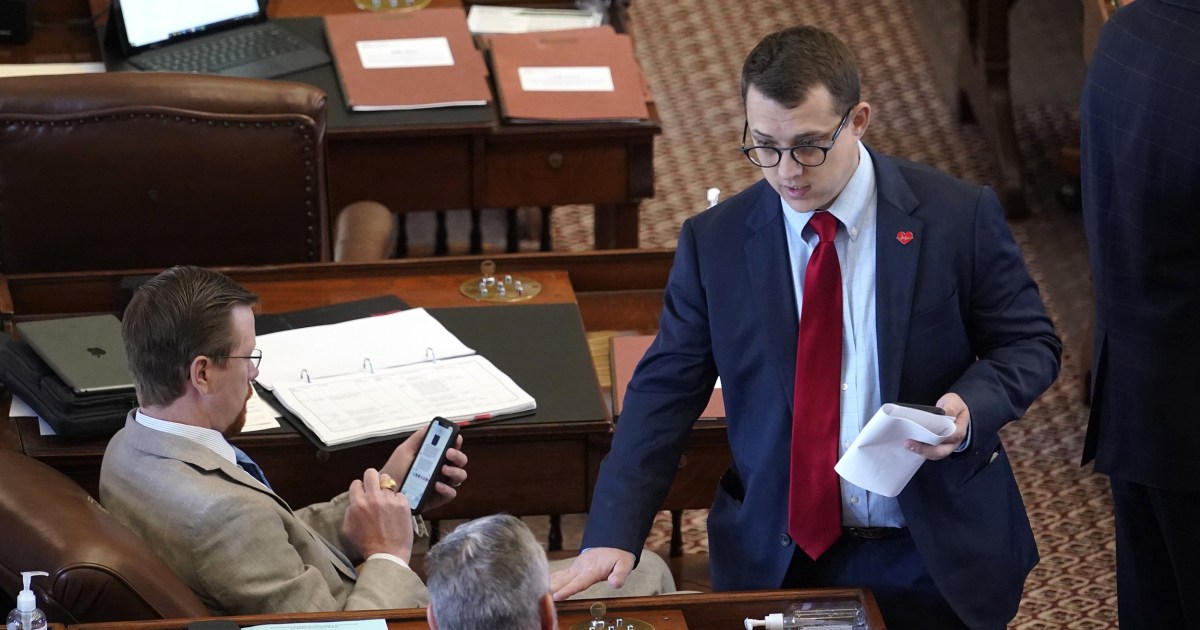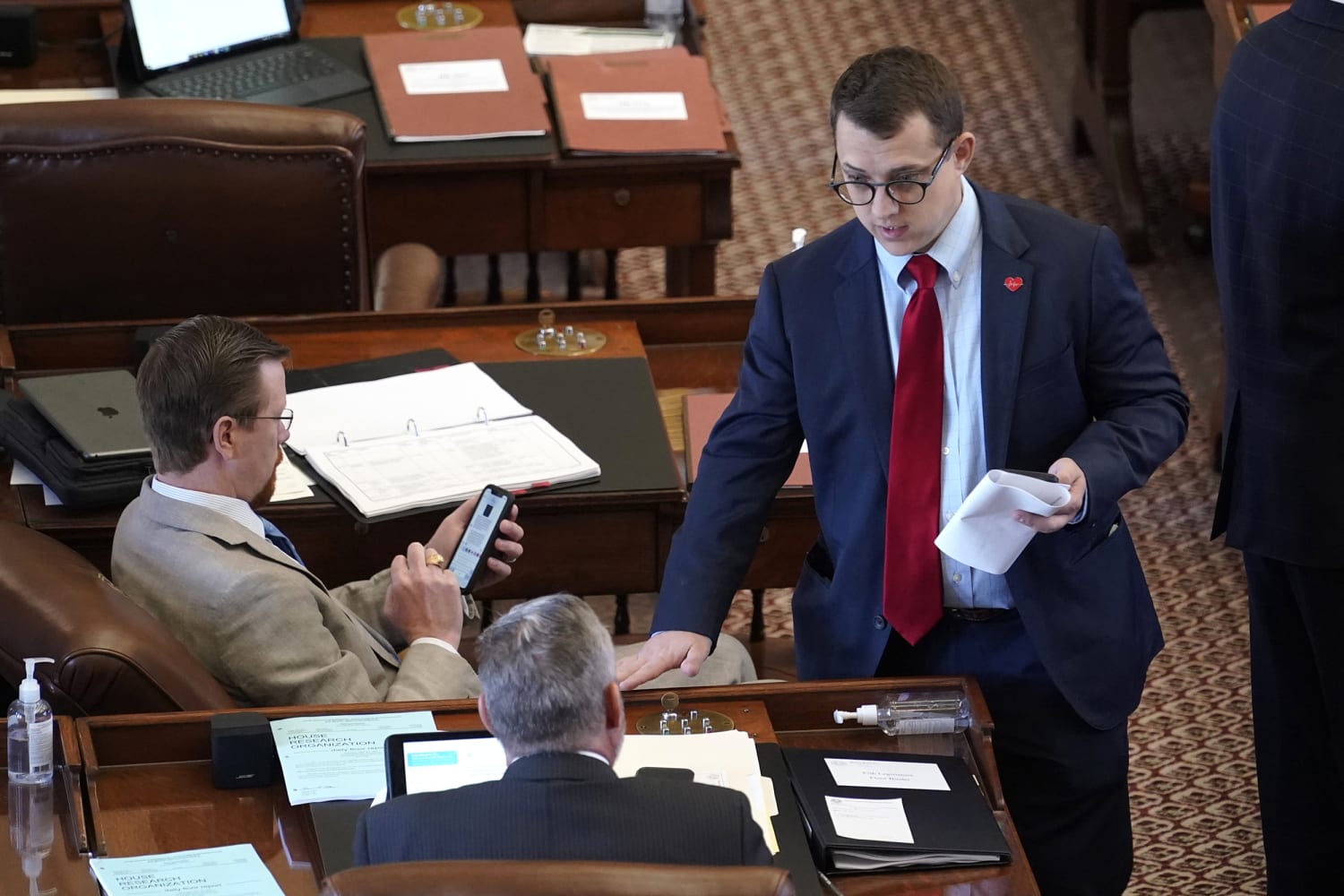
Texas Democrats are waging an all-night fight against a restrictive election bill, vowing to file more than 100 amendments in an effort to derail or limit the impact of legislation that would create criminal penalties in the election process and empower partisan poll watchers.
Debate on the bill began around 6 p.m. local time, after negotiations between the two parties broke down earlier Thursday. Texas state Rep. Jessica González, the Democratic vice chair of the House Elections Committee, said Democrats had sought to “soften” some of the language and limit the criminal penalties created in the bill, but were unable to reach an agreement.
“At this point, we have no other choice,” González told NBC News during the debate. “We went ahead and filed our amendments.”
The floor fight comes after Democrats and activists spent the day rallying against the bill they argue will suppress voters and disenfranchise voters of color. Republicans led by state Rep. Briscoe Cain, the chair of the Elections Committee, say the House bill will ensure ballot integrity and protect Texas voters from coercion and fraud.
Gov. Greg Abbott, a Republican, has urged lawmakers to pass election legislation and made doing so a priority for the session.
State and national Democrats hosted a news conference on Capitol grounds early Thursday, and dozens of protestors held signs and chanted “voter suppression has got to go” as lawmakers walked onto the House floor for the 10 a.m. session.
“The response to more competitive elections in Texas by the Republican Party has been to try and stop people who disagree with them from voting,” said U.S. Rep. Joaquin Castro, a Texas Democrat. “Their strategy is not good governance, it’s not great ideas anymore, their strategy in Texas is to keep you from voting. That’s the Republican Party in Texas today, and quite honestly, it’s the Republican party across the country.”
Former President Donald Trump’s stolen election lie has inspired hundreds of restrictive election bills across the country, despite the fact that there is no evidence of widespread fraud in U.S. elections. By all official accounts, the 2020 election was secure and the results certified accurate. But state lawmakers — many of whom joined with Trump to cast doubt on the system — are nonetheless legislating to restrict the vote, arguing that new measures are needed to restore trust in the system.
Debating more than a hundred amendments could take hours, advocates and Democrats said, and Republicans are expected to propose their own amendments as well; in the first two and a half hours of debate, lawmakers discussed the bill and just one Democratic amendment.
“My Democratic colleagues and I have more than 100 amendments,” state Rep. James Talarico, tweeted Thursday afternoon before the floor fight kicked off. “We’re prepared to fight this all night. Good trouble. Necessary trouble.”
Democrats do not have anywhere near the votes to stop the bill — Republicans have 83 seats in the House, compared to Democrats’ 67 seats — but critics argue it is nonetheless necessary to fight a bill they say will make voting scarier and harder.
The bill makes it a state jail felony for election officials to “solicit” or “distribute” mail ballot applications unless the voter asks for that ballot first, something advocates say will make it harder for election officials to do their job and communicate with voters who are eligible to vote by mail about the option.
It requires anyone helping voters to cast a ballot to disclose why their help is needed and what their relationship to the voter is, and imposes criminal penalties for certain errors by helpers.
The bill also empowers partisan poll watchers, something Democrats warn could make it easier for partisan officials to intimidate voters. Republicans in Harris County are already planning to recruit thousands of Republican poll watchers, particularly in the suburbs of Houston, and send them into communities of color in Houston’s urban center.
The bill was originally proposed as House Bill 6, but Republican lawmakers used a legislative maneuver to ensure that the legislation will advance quickly. Last week, Republicans replaced the text of a different bill, Senate elections bill, SB 7, with HB 6. There are two votes required on SB 7 to advance it out of the House, after which the Senate and House elections bills are expected to end up in conference committee where they will be reconciled by lawmakers.
Source: | This article originally belongs to Nbcnews.com










